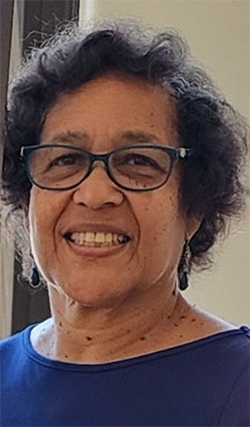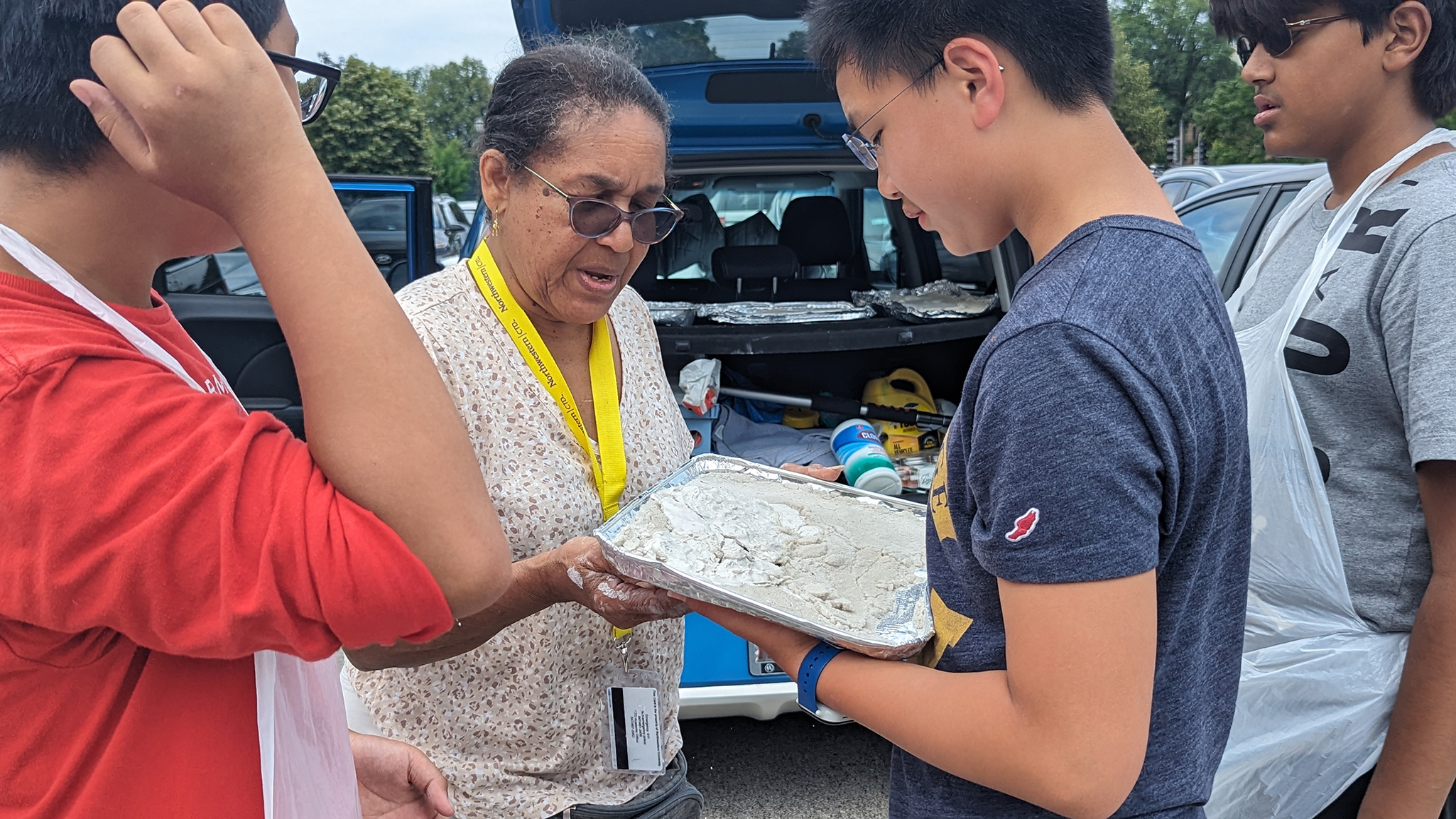CTD Provides Experienced STEM Teacher a Creative, Supportive Outlet
Retired Chicago Public Schools educator, Elizabeth Copper, reflects on how she used her CTD teaching experiences
By Ed Finkel
Although fulfilled by a career teaching science for 20 years at Chicago Public Schools, the last 10 of them at the selective enrollment Lindblom Math and Science Academy, STEM teacher Elizabeth Copper says teaching at Center for Talent Development (CTD) for the past nine years has provided a creative and highly supportive outlet that’s helped her grow—in ways that also benefited her CPS students.
During her career at CPS, before retiring in 2022, Copper taught subjects like life science, environmental science and honors biology to middle school students, and she created an honors forensic science course at Lindblom. Named a Golden Apple Fellow in 2013, she is also executive director of the Chicago Public School Student Science Fair, Inc., a nonprofit that encourages CPS students to present research and otherwise network with those in STEM fields.
At CTD, Copper has taught more than 20 STEM courses ranging from “Introduction to Biomedicine Honors,” to “Forensic Investigations” to “Comparative Anatomy,” and she plans to teach more. “If you become a teacher at CTD, it is a very supported environment,” she says. “You expand your teacher toolkit by working there, too. And it makes you think about, ‘How can I do this at my home school?’ ”
While Copper has always tried to find ways to raise funds to support her classes
in CPS, she appreciated from the get-go how CTD supports its instructors. “They asked, ‘What would you need for your class to be successful?’ And we got it.”
The ability to choose topics and contribute to the curriculum has been another quality that’s kept Copper coming back to Evanston. “There was some framework, and you could add to it,” she says. “That was what I needed at the time—to have a class and put some of me into it.”
As a lifelong learner, Copper says every course has given her an opportunity to expand her skill-set. “It allows you to be creative,” she says. “It stretches my mental capacity. It stretches me to think about ways to implement a course. … That’s different from a regular classroom where you may have a set curriculum: ‘You’re teaching biology this year.’ ” This creativity and “stretch” is an important part of CTD’s approach—talent development for all, helping teachers continue their own learning as they work with subjects they are passionate about.
The regular opportunities for experiential learning are another draw for Copper. “When I was in school, I remember having hands-on experiences,” she says. “That, to me, is critical when you’re teaching science. Experiential learning tends to last longer than reading a text. All of my classes have always had labs. I want students to be able to feel comfortable in any lab setting. ... The kids were able to work together, able to collaborate and respect each other’s opinions.”
For example, when Copper taught “Science of Engineering” during a time when football concussion protocols were being reviewed, she obtained the materials needed for them to design a football helmet that would better protect players’ brains from traumatic injury. “I had them design a helmet and to explain why they designed it like they did,” she says. “You’ve got the young people thinking outside the box to keep the players safe. You want these kids to be those future scientists who put the designs in place.”
Copper greatly enjoys the diversity of students at CTD, some of whom hail from different states—or even different countries, such as China or South Korea, for in-person classes.
“This has always been a very diverse group of kids. The other piece that’s interesting is, they’re mostly not African-American. Some of them have never had an African-American teacher. They need to see me as a teacher who knows some stuff, whatever stereotypes they might have come in with. It’s interesting to see their response.”
What her CTD STEM students have in common is a love of science and a desire to learn from one another, Copper says. “It opens up everybody’s perspective,” she says. “It gives me an opportunity to give students exposure to different types of teaching styles.”

Copper’s top advice to her students is to follow their interests and passions, and in doing so, gain exposure that further opens their eyes to their possibilities in life. For example, she recently taught a weeklong cell biology course at CTD, and she took students to the protein engineering lab at Northwestern, where they saw cutting-edge equipment and machinery and heard presentations from PhD and graduate students.
“They were so awed,” she says. The NU students “were so nice, informative and interactive … By following your interests, you can be exposed to a variety of things that might [further] pique your interest. You say this is your passion: follow that passion.”
Copper developed a passion to bring everything she learned and experienced at CTD back to her students at Lindblom and CPS. “You begin to think about your regular class, and the access and exposure for those who may not be able to go to a class at a place like CTD,” at least not without scholarship funds, she says. “How can we increase access and exposure to the topics, to let them know what’s out there, so that they can participate in it?”
To learn more about teaching for talent development, bringing CTD weekend courses to your school, or getting students involved in programming, contact us at ctd-school-services@northwestern.edu. Check out weekend, online and summer job opportunities.

